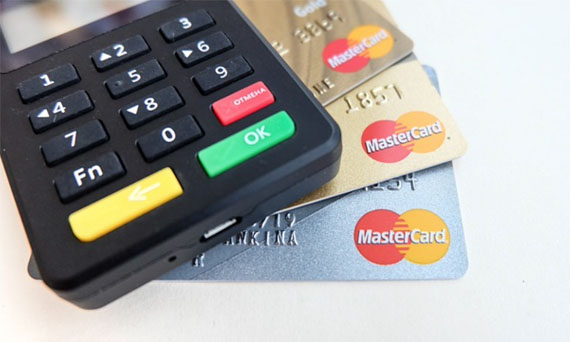Bitcoin vs. Traditional Payment Methods: Which is Better for Online Casinos?
By Space Coast Daily // February 17, 2025

The world of online gambling has changed quickly, thanks to technology and how people now behave. One big change is using cryptocurrencies, especially Bitcoin, for payments.
Online casinos are using Bitcoin more, leading to questions about its pros and cons compared to credit cards, e-wallets, Paysafecards, and bank transfers. This article looks at both options to decide which is better for online casinos.
Understanding Bitcoin Payments in Online Casinos
Bitcoin, the first decentralized cryptocurrency, operates on blockchain technology, enabling secure and transparent transactions. Its integration into online casinos, as shown in the examples here, allows players to deposit and withdraw funds using a digital wallet, bypassing traditional banking systems. Bitcoin’s popularity in online gambling stems from its promise of privacy, speed, and minimal fees. As a decentralized currency, Bitcoin offers players and casinos a way to transact without the oversight of intermediaries such as banks or payment processors.
Bitcoin’s Perks in Online Casinos
Bitcoin provides several benefits for online casino transactions. One of its primary advantages is enhanced privacy. Transactions conducted through Bitcoin offer a level of anonymity that is unmatched by traditional payment methods. Players can fund their accounts without revealing personal information, which is particularly appealing for those who are concerned about maintaining their privacy.
Another benefit of Bitcoin is its speed. Deposits and withdrawals are often processed much faster than with traditional methods. This is particularly evident in cross-border transactions, which can take days to complete through conventional banking systems but are nearly instantaneous with Bitcoin.
The transaction fees associated with Bitcoin are also significantly lower. Traditional payment methods often involve intermediaries, such as banks or payment processors, which add additional costs. Bitcoin eliminates these intermediaries, reducing the fees and making it a cost-effective choice for both players and casinos.
Bitcoin is also globally accessible. Unlike traditional payment methods that are often restricted by geographical boundaries, Bitcoin operates independently of location. This makes it an attractive option for players in countries with limited access to traditional financial systems or those facing banking restrictions.
Security is another key advantage of using Bitcoin in online casinos. The decentralized nature of blockchain technology reduces the risk of fraud and chargebacks, offering peace of mind to both players and casino operators.
Why Perhaps Not Bitcoin?
However, Bitcoin is not without its drawbacks. The cryptocurrency’s value is volatile, which poses a risk to both players and casinos. Fluctuations in Bitcoin’s price can lead to losses if the value decreases during or after a transaction.
Additionally, Bitcoin has a steep learning curve for those who are unfamiliar with cryptocurrencies. Setting up a digital wallet and understanding how blockchain technology works require effort and technical knowledge, which can be a barrier for new users.
Bitcoin’s lack of regulation is a double-edged sword. While it appeals to those seeking privacy, it also exposes players to potential risks from unregulated or fraudulent operators. This can be a significant concern in an industry that thrives on trust and security.
Another downside is the irreversibility of Bitcoin transactions. Unlike traditional payment methods that allow for chargebacks or dispute resolutions, Bitcoin transactions cannot be undone once completed. This can be a disadvantage in cases where a transaction goes wrong or disputes arise.
Traditional Payment Methods in Online Casinos
Credit cards, e-wallets, Paysafecards and bank transfers have been reliable for online transactions. They offer many benefits, like being widely accepted by almost all online casinos. This convenience makes them popular among players.
Paysafecards, a prepaid method, provide simplicity and safety. They can be bought in stores and used online without linking to a bank. This appeals to users wanting anonymity. Prepaid cards also help control spending, preventing overspending.
These traditional methods are easy to use. Most people already know how to use them, so no learning is needed. Players feel confident in completing transactions with familiar tools, and in some countries, the willingness to explore newer options might be a lot less prevalent than in other countries.
Regulation offers another advantage. Banks and other institutions managing these payments are strictly controlled, giving players trust and options if issues arise. Cryptocurrency payments lack this kind of security.
Finally, traditional methods maintain stable value. Unlike Bitcoin’s unpredictable price, these methods offer stability, which many players find important.
Higher Commission Fees
Traditional payment methods often have higher costs. Credit card transactions might involve fees and e-wallets sometimes ask for extra charges for certain actions. These costs increase, mainly with international payments or currency changes. Paysafecards, while easy to use, may also have charges for currency conversion or inactivity, depending on the company. Processing times might be inconvenient with traditional payment methods. Credit card deposits are usually immediate, but withdrawals can take days, especially international ones. This wait can upset players who want fast access to their winnings.
Privacy concerns also exist with traditional payment methods. These usually need players to share personal and financial data, which worries those who value privacy. Geographic limits can also restrict the use of these methods, posing challenges for players in some areas.
The Future of Online Casino Payments
The future of online casino payments depends on players’ and casinos’ priorities. Bitcoin attracts tech-savvy users who like privacy, speed, and lower costs, while traditional methods draw those who want stability and security. Paysafecards are a mix, offering Bitcoin’s privacy and traditional methods’ familiarity.
Many online casinos now use hybrid payment systems to meet various player needs. By offering both Bitcoin and traditional options, casinos give flexibility. New ideas like stablecoins or smart contracts could combine cryptocurrency benefits with traditional currency stability.
As the online gambling industry grows, mixing cryptocurrencies and traditional payments will most likely shape how transactions are done. Tech growth and rule changes will hugely impact balancing these payment choices.
Conclusion
The argument between Bitcoin and traditional payment methods is complex, with each having pros and cons. For online casinos, offering both options allows them to please a wide audience and stay competitive. Bitcoin is able to keep cost low, making it cost-efficient, all whilst being suitable for players worldwide and providing protection against fraud. The use of Fiat currency is the norm, making it comfortably familiar for everyone – however, identity theft and fraud are two concerns that can’t be easily eradicated, since it does rely on the usage of personal data. Compared to cryptocurrencies, traditional currencies usually have far fewer fluctuations in terms of value, making them more stable. Paysafecards reduce the need for personal financial information, reducing the risk of fraud, bridging the gap between crypto- and fiat currencies by offering secure, prepaid, and easy transactions. Ultimately, the best choice depends on personal preferences and the specific situation.












